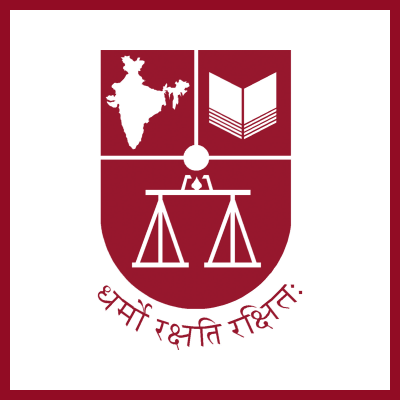Master ofBusiness Laws(MBL)
Overview
The MBL is NLSIU’s flagship hybrid education degree, and has been offered continuously from 1994. Graduates from this programme are managers and in-house lawyers in the biggest corporations in India.
This programme provides candidates with post-qualification experience the opportunity to enhance their professional skill-set and prepare for leadership positions in the commercial world.
Programme Highlights:
- Tailored for lawyers and managers at all levels to acquire legal skills and the ability to assess legal risks for better decision making.
- Introduces students to 10 intersecting sub-disciplines of law including contract law, corporate law, commercial law, intellectual property, banking and investment law.
- The programme is spread across 2 years and gives learners the flexibility to design their own learning pathway.
Courses
Year 1, Course I: Contract Law
This course provides an overview of contracts and their significance in a commercial and industrial context. Takes students through a thorough examination of the norms relating to various types of contracts, their formation, termination, breach, and expiry.
The paper consists of the following modules:
Module I: Contract: Concept and its Role in a Developing Society
Module II: Capacity and Consideration
Module III: Free Consent & Public Policy
Module IV: Government and Quasi Contracts
Module V: Discharge of Contract
Module VI: Breach of Contract and Remedies
Module VII: Representative Contracts
Module VIII: Special Contracts
Module IX: E-Contracts
Year 1, Course II: Banking Law
This course familiarises students with traditional norms of banking law, as well as emerging trends in the sector, and the regulations that govern it. It provides an overview of the banking system and the banker-customer relationship, and examines them as a natural extension of the basic principles of contract law, tort law, property law, company law, and other related areas.
The paper consists of the following modules:
Module I: Understanding The Context
Module II: Central Bank & Its Role
Module III: Regulating Banks
Module IV: Law Of Negotiable Instruments
Module V: Banker and Customer
Module VI: Other Banking Related Laws
Year 1, Course III: Corporate Law
This course provides students a thorough grounding in corporate laws, and examines newer legislation governing business and commerce, such as the Insolvency and Bankruptcy Code and the Competition Act.
The paper consists of the following modules:
Module I: Formation of a Company
Module II: Characteristics of Corporate Personality
Module III: Management of the Company
Module IV: Corporate Finance and Investor-Protection
Module V: Secretarial functions, Corporate Accounts and Audit
Module VI: Winding Up- The Insolvency and Bankruptcy Code, 2016
Module VII: Competition Act, 2002
Year 1, Course IV: Industrial Relations Law
This course seeks to introduce to students the fundamental features of the legal framework governing labour and employment relationships in in India and provide them with a nuanced understanding of the fundamental paradox of the discipline of Labour Law in India in as much as it is over-legislated even as workers remain under-protected.
Labour and employment laws play a critical role in business by governing one of the factors of production. By protecting the rights of workers and promoting fair employment relationship, labour laws seek to ensure harmonious employer-employee relationship and industrial relations. Understanding these laws and their implications is, therefore, vital for professionals in various fields such as human resources, employment law, industrial relations, and business management.
With the emergence of new forms of work like platform work and increased contractualization of the workforce, many of the key concepts of this discipline have come under strain. Further, the Labour Laws in India are on the cusp of an epochal change with the four major Labour Codes having been enacted by the Parliament. Even though these Codes have not been notified, this Course would straddle both the existing statutory regimes and the corresponding provisions of the new Codes. With more than 90% of the labour force in India working as informal workers, the story of labour laws in India is a story of exclusion. Therefore, even as various statutory regimes on labour protection are discussed, students shall be invited to reflect on the scope of application of these regimes and rules to informal workers.
With this course, students will gain insights into the rights and responsibilities of both employers and employees, learn how to navigate complex legal issues in the workplace, and develop a critical understanding of the broader social and economic implications of labour laws.
The paper consists of the following modules:
I. Introduction to Labour and Industrial Relations Law
II. Building Blocks of Labour Law: Workplaces and Workers covered by Labour Laws
III. Introduction to Law of Trade Unions and Collective Bargaining
IV. Dispute Resolution Machinery in Industrial Law and State Intervention
V. Protection from Lay-Off, Retrenchment and Closure
VI. Regulation of Conditions of Service and Managerial Prerogatives
VII. Regulation of Conditions of Work and Occupational Health: Contract Labour and Migrant Labour
VIII. Law of Wages
IX. Law of Social Security Employment Injury Compensation and Insurance
Year 1, Course V: Environmental Law
As the conflict between the industrialised world and our natural environs escalates, it has become critical for business leaders to understand the nuances of running a sustainable commercial operation that does not violate environmental norms. This course provides students an overview of environmental law and regulation governing commerce and industry in India, as well as global agreements and treaties on the subject to which India is a party.
The paper consists of the following modules:
Module I & II: Legal Regime of Pollution Control
Module III: Understanding Biodiversity Law
Module IV: Land Laws
Module V: Law relating to Environment and Industry
Year 2, Course VI: Investment Laws
Trade in securities, whether through regulated stock exchanges or in transactions involving mergers and amalgamations, and ‘funding’ transactions by private equity and venture fund entities, is an essential component of the modern business world. This course prepares students to understand the world of investment laws.
The paper consists of the following modules:
Module I: History and Development of Securities Market and its Regulation in India
Module II: Primary Market Regulations
Module III: Secondary Market Regulations
Module IV: Cross Border Transactions in Securities
Module V: Investor Protection
Year 2, Course VII: Insurance Laws
The COVID-19 pandemic has highlighted the criticality and centrality of insurance laws in ensuring business resilience. This paper provides students deep learning in various types of insurance laws and their impact on business.
The paper consists of the following modules:
Module I: General Principles of an Insurance Contract
Module II: Introduction to Life Insurance Contracts
Module III: Introduction to Fire Insurance
Module IV: Marine Insurance
Module V: Health Insurance
Module VI: The Insurance Regulatory and Development Authority Act, 1999 and associated legislations
Year 2, Course VIII: Law relating to International Commercial Transactions and Foreign Trade
The law of transnational commercial transactions governs private commercial transactions across national frontiers. In a globalised world, business leaders and managers must understand the legal framework governing this area in thorough detail, and this course helps students do exactly that.
Module I: Introduction
Module II & III: Introduction to Sea Carriage & Carriage of Goods by Sea: The Liability Regime
Module IV: Carriage by Air
Module V: Sale of Goods under Common Law and the CISG
Module VI: Sale of Goods in India
Module VII: International Payment Mechanism
Module VIII: Settlement of International Commercial Disputes
Year 2, Course IX: Intellectual Property Laws
As software, pharmaceutical patents, and media and entertainment content take centre stage in the world economy, understanding the law relating to the formation, protection, and commercialisation of intellectual property has become vital to running a successful enterprise. This course provides students a deep understanding of such laws in India and across the world.
The paper consists of the following modules:
Module I: Introduction to Intellectual Property
Module II: International Regime Of Intellectual Property Rights
Module III: Law of Copyright and Neighbouring Rites
Module IV: Law of Patents
Module V : Law of Trademarks
Module VI: Geographical Indication
Module VII: Law of Designs
Module VIII: Protection of Plant Varieties and Farmers’ Rights, Semiconductor Integrated Layout Designs, Trade Secrets, Biological Diversity
Year 2, Course X: Taxes on Corporations and Commodities
As the introduction of the Goods and Services Tax in India has highlighted, tax law and the manner of its implementation has a crucial impact on business strategy, planning, and earnings. This course familiarises students with various aspects of commercial tax laws.
The paper consists of the following modules:
Module I: General Principles of Taxation
Module II: Direct Taxes
Module III: Corporate Tax – I
Module IV: Corporate Tax – II
Module V: Goods and Services Tax Law
Module VI: Customs Duty in India – The Customs Act of 1962
Module VII: International Tax with Special Reference to Taxation of Electronic Commerce
Faculty

Professor of Law

Prabhakar Chandramouli
Visiting Faculty

Aditya Kamath
Visiting Faculty

Associate Professor of Law, NLSIU

Assistant Professor of Law

Praveen Tripathi
Visiting Faculty

Assistant Professor of Law

Assistant Professor of Law

Assistant Professor of Law

Assistant Professor of Law
Fee
For Indian Nationals
| Regular Fees (MBL Year 1) | |
| Application fees | Rs. 2,000 |
| Admission fees | Rs. 3,000 |
| Course fees | Rs. 48,000 |
| Examination Fee | Rs. 4,000 |
| Total fees | Rs. 57,000 |
| Regular Fees (MBL Year 2) | |
| Course fees | Rs. 42,000 |
| Examination Fee | Rs. 4,000 |
| Total fees | Rs. 46,000 |
| Other fees | |
| Admission late fee | Rs. 500 |
| Continuation fee | Rs. 3,500 per year |
| Extension fee | Rs. 6,000 per year |
| Re-evaluation fees | Rs. 900 per paper |
For Foreign Nationals
| Regular fees (MBL Year 1) | |
| Application fees | Rs. 2,000 |
| Admission fees | Rs. 3,000 |
| Course fees | Rs. 1,44,000 |
| Examination Fee | Rs. 4,000 |
| Total fees | Rs. 1,53,000 |
| Regular Fees (MBL Year 2) | |
| Course fees | Rs. 1, 26,000 |
| Examination Fee | Rs. 4,000 |
| Total fees | Rs. 1,30,000 |
Apply
Please note the following information regarding eligibility and the mode of applying for this programme.
Eligibility
The minimum eligibility for applying for this programme is a graduate degree (in law or other fields) from a recognized university.
Students with a degree certificate or its equivalent from any UGC-recognized university, Association of Indian Universities, CA, CS, ICWA, Open University/distance learning can apply. There shall be no restriction as to age, nationality, gender or employment status.
Important Dates
Admission Deadline: July 21, 2025
Classes are tentatively slated to begin by mid-August 2025.
For admission-related queries, please write to admissions.pace@nls.ac.in
FAQs
These are some commonly asked questions about this programme. For general questions about the NLSIU Distance Programme, please visit the General FAQs page.
Can the MBL programme be considered equivalent to an LL.B.?
An LL.B. degree is an undergraduate degree whereas, the MBL is a Masters degree focused on Business Laws. Though there might be some content overlap with the LL.B., the MBL programme material is much more comprehensive and allows the students to develop an expertise in areas of Business Law.
Can the MBL programme be considered equivalent to an LL.M.?
The MBL and LL.M. are both Masters degrees. However, the content is different. The MBL enables the students to cultivate a postgraduate level of understanding of all the Business related laws.
What are the job opportunities after MBL?
An MBL is always preferred over any other graduate, as he specializes in as many as ten areas which are very pertinent to the business community. She / He can do all the tasks which an LL.B. graduate can do, except appearing in Courts of Law. MBL graduate can be a Law Officer / Legal Assistant / Legal Advisor in all the areas of business requirement.
Is there a time limit for completion of course?
The duration of the course shall be for a period of two academic years.
MBL: M.B.L. is a two year course. Every candidate admitted to the course shall pay the prescribed fees at the time of admission. If a candidate is required to continue the course beyond the second academic year because of his/her non-fulfilment of the prescribed requirements for the award of the degree, he/she will be permitted to continue for the subsequent three academic years or till all the requirements are completed whichever is earlier by paying a continuation fee as prescribed for each year (prevailing fee Rs. 3,500/-).
After a period of five years if the candidate is still not able to clear the course s/he may be given an extension of another 3yrs by paying Rs. 6,000/- per year for the subsequent three years as extension fee provided, s/he should have cleared 50% of the papers (out of total number of Papers prescribed) from MBL I & IIyr.
At the end of the eighth academic year, if the candidate fails to fulfil all the requirements for the award of the degree, the admission stands automatically cancelled.
Is it possible for a student to take courses prescribed for MBL - first year and second year together?
Students admitted to MBL – first year programme are eligible for promotion to the second year even if they are unable to pass all the courses required in the first year. However, at the end of the first academic year, a student has to remit the second year to continue in the second year. At the end of second year, the student can take exams for courses offered in the first and second year of the MBL programme.
What if the candidate does not complete the course in 5 years ?
After a period of five years if the candidate is still not able to clear the course s/he may be given an extension of another 3yrs by paying Rs. 6,000/- per year for the subsequent three years as extension fee provided, s/he should have cleared 50% of the papers (out of total number of Papers prescribed) from MBL I & IIyr. At the end of the eighth academic year, if the candidate fails to fulfil all the requirements for the award of the degree, the admission stands automatically cancelled. His performance at the earlier exams is not carried forward. He will have to redo the entire academic exercise prescribed, in the syllabus.
What is the scheme of Assessment?
Every course shall have a combination of formative and summative assessments. This will aid in regular learning and understanding concepts better. Please note the following details regarding the upcoming assessments: Assessment Details:
| Sl. No | Assessment Type | Assessment Pattern | Marks Allotment | Mode |
| 1. | Formative I | MCQs | 20 Marks | Online |
| 2. | Formative II | MCQs | 30 Marks | Online |
| 3. | Summative | Subjective | 50 Marks | In-person |
What is Grading Mechanism?
To successfully complete a programme, a student must take all three assessments (Formative I + Formative II + Summative) and obtain a cumulative grade point average (CGPA) of three and above out of seven. An aggregate of your performance will count towards the final grade in each course.
| Grade | Grade Description | Grade Point | Percentage of Marks |
| O | Meets the highest standards for the assignment or course | 7 | 70% and above |
| A+ | Meets very high standards for the assignment or course | 6 | 65% to 69.99% |
| A | Meets high standards for the assignment or course | 5 | 60% to 64.99% |
| B+ | Meets most of standards for the assignment or course | 4 | 55% to 59.99% |
| B | Meets basic standards for the assignment or course | 3 | 50% to 54.99% |
| C+ | While acceptable, falls short of meeting basic standards in several ways | 2 | 45% to 49.99% |
| C | Lowest passing grade | 1 | 40% to 44.99% |
| F | Failing, very poor performance | 0 | Below 40% |

Admission Status
Open till July 21, 2025
Duration
2 YEAR
Number of Courses
10
Course Fee (Indian Nationals)
Rs.1,03,000/-
Course Fee (Foreign Nationals)
Rs. 2,83,000/-
